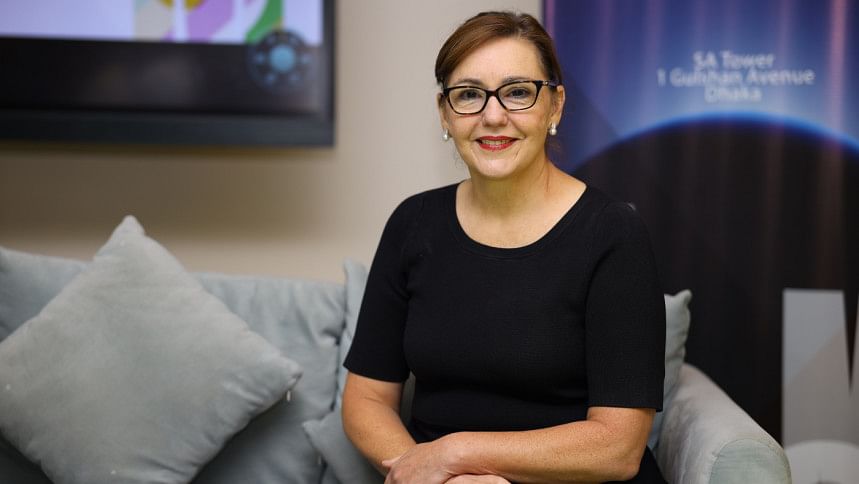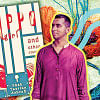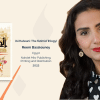In conversation with Jo Mithen, CEO, Monash College

Jo Mithen is the Chief Executive Officer (CEO) of Monash College. Monash College is a wholly owned subsidiary of Monash University in Melbourne, Australia. Campus had the opportunity to sit down with Mithen, for an informative discussion on the growing accessibility to and popularity of studying abroad amongst the Bangladeshi youth.
Campus (C): How do you look at the recent trend in the increasing number of Bangladeshi students going abroad for higher studies?
Jo Mithen (M): I see this as a positive sign. It represents an increased capacity to study abroad, which represents a growing wealth, notably amongst the Bangladeshi middle class. Accessing an international education has, perhaps, not been on the radar for many people in the past, but it's excellent that the accessibility is increasing at the same time that a truly global education is growing in importance. The trend, overall, is a very positive indicator of Bangladesh becoming a more global player.
C: What kind of differences do you notice in national curricula while assessing admission seekers from around Asia and where do Bangladeshi students stand in your assessment?
M: One of the key differences between a lot of the curricula in Asia is that the approach is centred more around learning the content. Students are taught to master the subject matter, which is a very traditional form of education. In Australia, as well as other English-speaking countries, we see a move towards the application of learning. It's not sufficient to understand the "what" of the subject matter and stop there; it's more important for students to apply that subject matter and answer the questions of why it matters and how to use the acquired information. As jobs evolve, it's going to be more important for students to be able to apply their learning than simply retell information that they've learnt. I believe education isn't about getting a piece of paper; it's about using it in your work to be a productive and global professional.
C: What are some of the advantages that "Pathway" programmes offer students to secure enrolment with renowned universities like Monash?
M: Pathway programmes are designed specifically for international students to help bridge one learning system with another. Thus, these programmes are incredibly valuable in providing the support that students require.
The benefit of the Monash Pathway programme is that since Monash is a top global institution, students who have completed a Monash programme are accepted in every university in Australia. We are also finding increasing numbers of international universities accept Pathway students. So, if English is a struggle for students, if their required grade is poor, and if the curriculum they are coming from does not prepare them for success at where they are going, a Pathway programme is an excellent option.
That isn't the only way, though. There are programmes within Bangladesh, for example, the Cambridge A level programme, and the International Baccalaureate, which also set you up well. Those programmes, however, take longer, typically about two years in duration, but they also provide you with access to global universities. There's a place for Pathway programmes, there's a place for high school programme certificates, and there's a place for local education.
I believe that by being here in Bangladesh, we are increasing the options for Bangladeshi students. The point around accessibility is very important. Through the Monash College model of its partnership with Universal College Bangladesh (UCB), we are allowing more Bangladeshi students to access Monash University if the cost is an issue. Undertaking the first year of a degree programme through our diplomas here in Bangladesh is substantially cheaper, whilst the same in Australia costs 52 thousand Australian dollars.
C: How do you, as an educational provider, bridge the global skills gap and empower students to acquire the high-level skills needed to secure prestigious career opportunities?
M: International labour mobility is fascinating to observe. We operate in markets such as Sri Lanka, Jakarta, Malaysia, etc., where we know that remittances are sent back. For example, in Sri Lanka, the remittances of Sri Lankan people who've gone abroad to work and send money home make a huge difference to the communities back home. It is also one of the largest sources of revenue for the country. My son-in-law comes from India. He sends money home to support his family in India. The role of international education for countries such as Bangladesh, India, Nigeria, and South America, where there are very large numbers of young people who do not necessarily get jobs locally due to there being not enough employment, is to provide opportunities in other markets where we have insufficient numbers of younger people, so it generates global wealth and opportunity for people to be able to move between different markets to apply their skills. Education facilitates this transfer of skills.
A lot of people look at it and say, "You are taking the young people out of these markets." But actually, more often than not, they do ultimately return home, or at least send money back, which uplifts other communities and provides greater skills in their respective countries, so the whole system works for the benefit of not just Australia, but also Bangladesh and other communities as well. It presents amazing opportunities for students here that they may not otherwise have had.
C: Would you, as the CEO of Monash College, like to share a few words for Bangladeshi students seeking an education at Monash University?
M: We have considered the Bangladesh market for a long time before we came in. I genuinely believe it is an emerging market with enormous potential, having seen first-hand the power of education in unleashing the potential of a country and its citizens. The choice to come to Bangladesh was a very conscious choice from Monash University. We have campuses in both Malaysia and Bangladesh, and we know that both markets are very attractive to Bangladeshi students. We consider this to be a long-term investment in this market, we will be here for the next 20 years, providing access to education, not just to Monash but a whole range of universities. We hope that a great many of our graduates will come back and support business here in Bangladesh. We also hope that those who move forward and travel on to have different careers internationally can speak positively about the experience that they've had, both here and at Monash University.

 For all latest news, follow The Daily Star's Google News channel.
For all latest news, follow The Daily Star's Google News channel. 








Comments